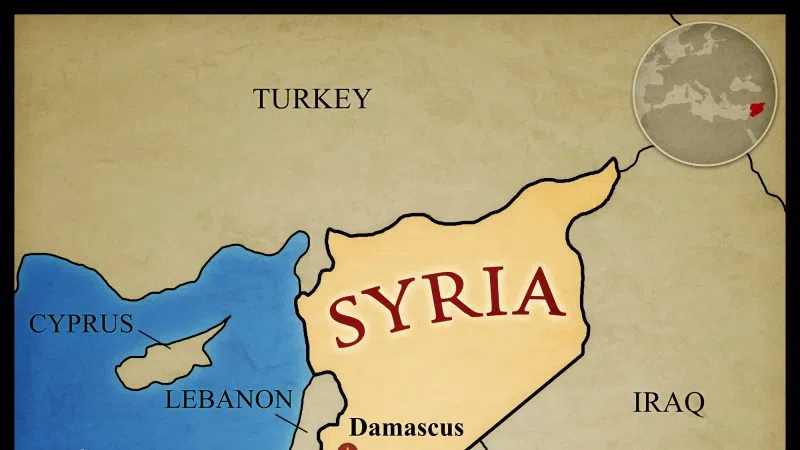(PORT-AU-PRINCE) — Mamyrah Prosper moved to the U.S. in 1998 with some of her family members. But while she came looking for opportunities, it’s Haiti that she calls home.
The Africana studies professor and mother of one often visits her family and friends on the island. But she says that these days, even before the assassination of the country’s President Jovenal Moïse a week ago, the country is scarier than it used to be.
“I arrived in Haiti at the end of May, so well before the assassination, which, I guess, we could have said was not quite surprising. … There were several massacres that took place at the beginning of June,” she told ABC News, referring to an influx of gang violence that has displaced thousands of residents. “So, before the Jovenal assassination, that was really what was weighing on everybody’s mind: ‘What’s happening next?’”
“You have an entire city that is controlled by gangs that are able to circulate very freely… And so, people were generally feeling extremely scared to even do very basic things like go find food, which is something we all must do inevitably,” she added.
Moïse’s death has thrown the country further into turmoil. Having spent years working to dig itself out of economic and political strife, the president’s assassination has created a power vacuum and made residents vulnerable to the widespread fear they’ve long faced.
A week ago, Moïse was home in the capital of Port-au-Prince sleeping with his wife when mercenaries entered the fortified home and killed the president, leaving the first lady critically wounded.
More than two dozen people, mostly foreigners, have been accused of playing a role in the assassination. However, authorities have arrested Haitian-born Florida resident Emmanuel Sanon, 63, accusing him of acting as the middleman between the alleged assassins and the unnamed masterminds.
Haiti’s national Police Chief Léon Charles said Wednesday that Sanon, a longtime critic of the Haitian government, wanted to take it over himself. He said that Sanon arrived on the island via private aircraft in June and accused the Miami doctor of contracting with a security company to enlist the services of the men who are now under arrest, including 18 Colombians and three Americans — one of whom occasionally worked as an informant for the U.S. Drug Enforcement Agency.
Sanon told police he had no knowledge of the attack, CNN reported on Wednesday.
In the wake of the assassination, Haitian officials declared a state of emergency and Martial Law, the latter of which was lifted by the weekend. However, with the country still reeling, many were hesitant to leave home.
“Life has been very hard,” Francois Jean, a shoe seller in Port-au-Prince, told ABC News in French on Sunday. The father of four said he hadn’t eaten in three days. “Since Wednesday up until today, I haven’t made a dime. … It’s just today that I see the activity has restarted, and even though it has restarted, the people don’t have any money.”
Makeson Pierre, a shoe-shiner, says he’s facing the same struggles and that he would improve his situation if he could.
“The country is difficult,” he told ABC News in French. “We have no water to bathe. We have no food to eat; we’re hungry. … See how I’m cleaning these shoes here. Yeah, if I could find something else to do, I would do it. … I’d like to get out of this situation.”
The shortages don’t just apply to food, though. At a gas station on Sunday, a group of people could be seen clambering for their turn at the pump.
“You have to fight to find gas,” a father told ABC News in French. “The opportunity to get gas is spontaneous.”
He noted that many of the people at the pump would have probably been at church instead.
The predominantly Catholic country is also highly religious, and at the same pump, Helene Jean appeared in her Sunday’s best, with her Bible still in her purse.
“I came from church and when I saw that they were giving fuel here, I went home and went back to get the gallon [containers] and came back to get some fuel,” she told ABC News in French.
Prosper said there is a lack of opportunities for everyday Haitians struggling for a better way of life. She’s among a younger generation of Haitians and Haitian Americans asking for the international community to support Haitian-led solutions to the country’s problems.
“If the U.S. people should do anything, right, it’s to support the actual Haitians who are embedded in their communities and have been organizing for decades — Haitians who say we are ready to take on the role that people have already chosen for us to do,” Prosper said.
“It’s actually the international intervention that has prevented Haiti from being able to determine what it wants to do,” she continued.
Many activists like Prosper have long criticized the way foreign humanitarian aid is distributed in Haiti. She says that the aid, though necessary for providing vital support to the country, has instead motivated further violence and corruption in the government and business sectors.
A century-long debt and the current struggle for power
Once a wealthy French colony built off the backs of enslaved laborers producing sugar and coffee, the country fell into economic hardship after a slave revolt that resulted in their independence in 1804.
But it paid a price for becoming the world’s oldest Black republic: France demanded the new nation pay indemnity for overthrowing the French slaveholders. The debt of 90 million gold francs — estimated to be worth tens of billions of dollars today — was so high that the country spent over 100 years paying it off. In the years since there have been growing calls for France to pay that money back.
Over the years, Haiti, currently the poorest country in the Western Hemisphere, had gone through periods of dictatorship, most notably that of Francois “Papa Doc” Duvalier in the mid-1900s. The country was dealt a severe blow in 2010 when a 7.0-magnitude earthquake struck, killing an estimated 250,000 people. The country again faced another natural disaster with Hurricane Matthew in 2016.
The president’s assassination has further entrenched the turmoil occurring in Haitian cities, even though many Haitians did not view Moïse favorably.
With the line of succession remaining unclear, Interim Prime Minister Claude Joseph has stepped up to lead the country’s scattered government with help from its military and national police force even as he faces opposition from its Senate. Joseph has declared a “state of siege” and has indicated he’d only assume control of the nation until a new president is elected — presidential and legislative elections had been slated for later this year.
Moïse’s political opponents had argued that his five-year presidential term had ended in February. The late president had argued that he had another year left after a disputed 2016 election pushed his inauguration to 2017.
He’d been governing by decree since January 2020 after the country failed to hold legislative elections and the legislature’s mandate expired. Opposition leaders accused him of trying to restore Haiti to a dictatorship. Then, earlier this year, the late president ordered three supreme court justices to retire and arrested nearly two dozen people, including government officials, for allegedly plotting a coup.
Moïse told a Spanish-language newspaper in January that he feared people wanted to kill him. The Haitian ambassador to the U.S. Bocchit Edmond told reporters following the president’s death that there was “no warning” ahead of his assassination.
The escalating constitutional crisis had sparked protests and intensified gang violence amid the COVID-19 outbreak throughout the country.
As a result of the political chaos, some activists and politicians are living in fear of being targeted by gangs. Ralph Francois is a social entrepreneur and CEO of Cocread, an organization focused on building sustainable communities in Haiti.
In January, he organized a protest demanding the government step up the search for his kidnapped friend. Then, two months ago, Francois told ABC News that he fled Haiti after learning that a gang had allegedly attempted to kidnap him.
“That day, I was supposed to be there but … because I had a Skype meeting where we had to plan — doing a demonstration for one of our friends that had been kidnapped that day,” he said. “So my neighbor was kidnapped. It’s like a whole house, and I live upstairs and she lives downstairs. She had two daughters. … It was shocking.”
Francois described the situation in Haiti as a “monster” the government can’t control and said that it has culminated in the president’s assassination.
“Our president has been killed … in a humiliat[ing] way, in his room,” he said. “So, if the president is not safe in Haiti, who’s safe? How can we trust the government who failed to protect us — who failed to protect the president — to engage us in the political process and bring serenity and security? They don’t have credibility for that.”
Haitian activists and educators are demanding better leadership, hoping it’ll help put an end to the country’s political corruption.
“Even though the situation of employment in Haiti is difficult, for women, it’s especially difficult,” Shawma Aurelier, executive director of Port-au-Prince-based women’s empowerment organization SOFA, told ABC News through a translator.
She said the president’s assassination will cause more people to lose hope in changing the country’s future.
“They come to the conclusion that the best thing to do would be to leave Haiti,” she said.
“It will be very difficult for Haiti to be rebuilt if all the residents and persons living in the country should decide the best solution is to leave,” she added.
Support from afar
Families and friends of Haiti’s residents are currently the largest source of external financial aid sent to the struggling country.
In Miami, much of the staff at the Chef Creole restaurant in the Little Haiti neighborhood send money to loved ones back home. Eslane Charles has been working there and told ABC News through a translator that she’s been supporting her parents and children from across the Caribbean.
“She said it’s tough,” said Wilkinson Sejour, chef and owner of the restaurant, translating for Charles. “Although you send money, it’s never enough.”
Sejour sees his restaurant as an economic engine for his employees and their families and said they need the money now more than ever.
“As soon as they get paid, they are dashing out of the restaurant so they can go to a local supermarket to do a money transfer,” he said.
Sejour said he’s noticed the glimmer of hope in his fellow Haitians and Haitian Americans grow dimmer recently as all the money they send seems to have no impact on the country’s outlook. But he implored people not to get discouraged.
“I know it’s depressing sometimes when people give and give and give … and they feel that their giving is not doing anything,” he said. “And I’m saying, on behalf of Little Haiti, on behalf of mini Haitis, on behalf of big Haiti herself, please don’t lose hope on us. Continue giving us everything that your conscious and your heart will allow you to give. And with the grace of Christ, we’ll be all right.”
Self-determination in Haiti
Francois, the first Haitian to be a Yale World Fellow, says he intends to return to and live in Haiti with his friends and family members. He said the next generation of young Haitian leaders like himself have been ready to take on the responsibility of making a better Haiti.
“We are ready. We are ready to take the lead and make sure that Haiti could become a land of security, a land of prosperity for its children because we have to,” he said. “I spent my whole life in Haiti. I work[ed] hard for that, and I don’t see myself living in other countries and I’m sure that there are other people in my generation who see that also.”
“I want the international community to listen to Haitians’ self-determination, to listen to civil societies,” he added. “To stop looking at Haiti as a land where we have two sides of political opponents fighting for power. It is more than that.”Prosper says she recognizes the privilege she has in being able to travel in and out of the country amid its many conflicts but said she remains optimistic that there will soon be a stronger Haitian-led solution to the country’s problems.
“I have no other choice but to be optimistic … when the people who are experiencing the hardship — and who are really faced with very dangerous situations — continue to have hope and are always fired up for the next fight,” she said. “So, I only have hope.”
Copyright © 2021, ABC Audio. All rights reserved.













